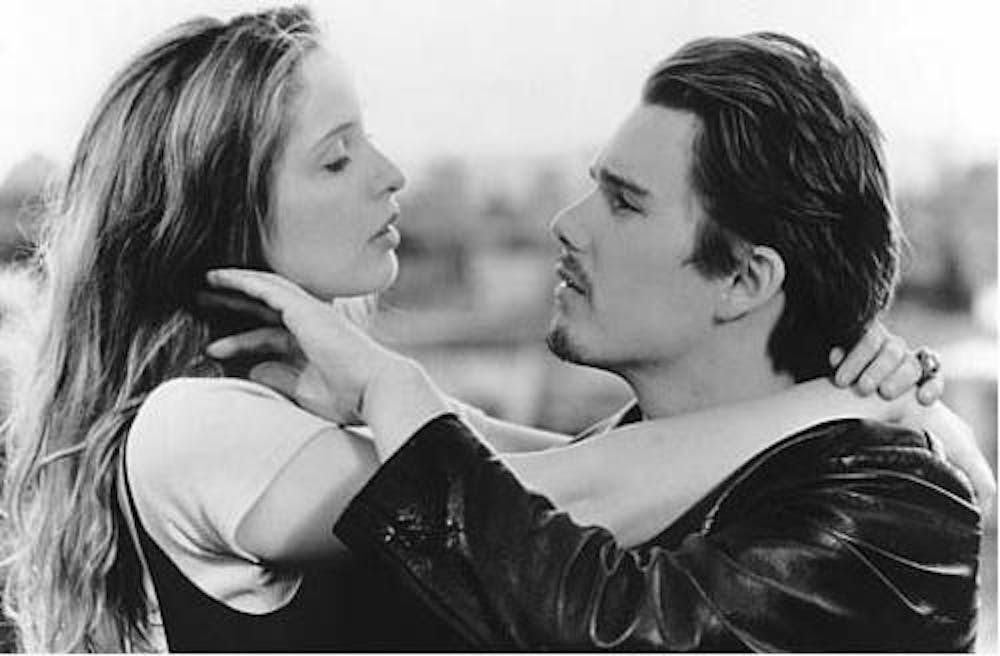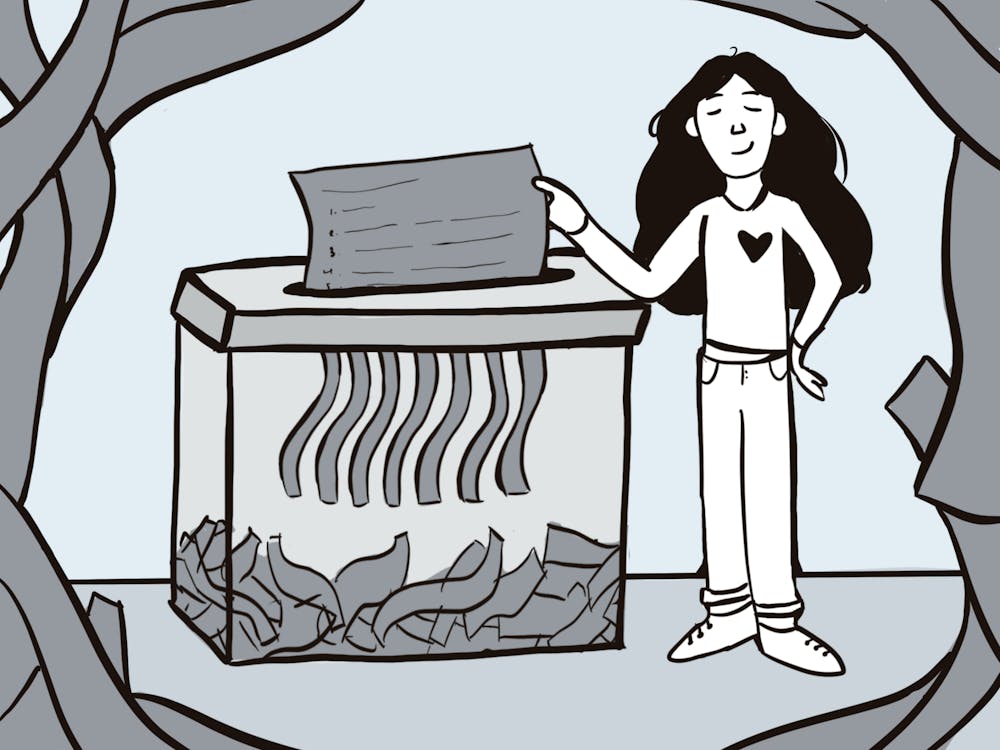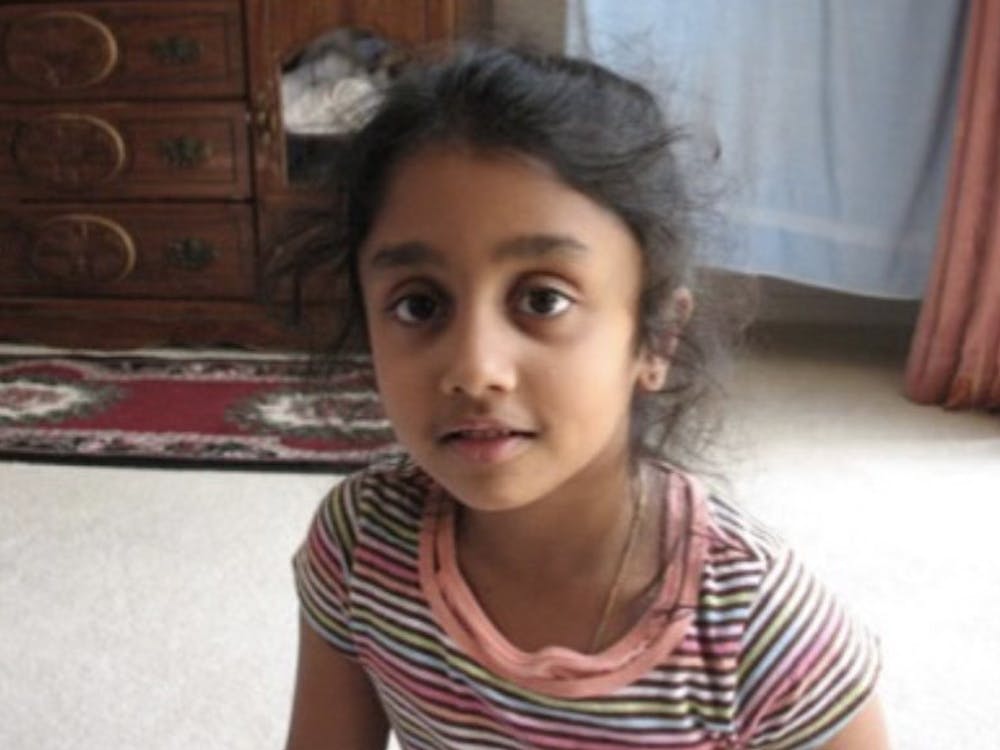For a long time I thought I was alone in my preference for talk over action. I’m pretty in love with conversation. The movies in which the romantic leads spend hours flirting and then arguing and then insinuating and then flirting and then arguing again — yeah, those drawn-out scenes you probably find infuriating? Those are my favorite. Talk, in my opinion, is the most seductive form of foreplay. It’s with our language that we all convey who we are and what we want, and it’s with language that we begin to get to know each other. Language is communication, and communication is connection, and connection is the only gateway to love.
But I’ll cut to the chase — I’m not alone in my obsession. “The erotics of talk” is a real, recognized wonder. For not the first and certainly not the last time, I’m going to harken back to the lessons I learned in film theory: Carla Kaplan, a film historian and an anthropologist, first originated the theory of talk as an inevitable desire — “the oldest human longing.” Furthermore she stresses the importance of personal speech and expression. “The strongest desire is the desire to tell one’s story,” she says. However, simply “telling one’s story” out into the abyss, leaving one’s words to reverberate off the empty chasms of the world, is not enough. We do not just want to speak. We want someone to speak back.
To illustrate this idea, I refer to one of my favorite stories: the trilogy of Richard Linklater romantic films entitled Before Sunrise, Before Sunset and Before Midnight. In my opinion these films comprise one of the greatest, most realistic portrayals of love. The three films follow their two leads for a period of 30 years, each film showing a point of their relationship, each a decade apart. In the end, this trilogy is at once mesmerizing and heartbreaking, beautiful and devastating. Yet despite the brutal realism of these films, the connection portrayed between the two protagonists — Céline and Jesse — is undeniable. It is an almost magical experience, watching the two interact, watching as they first meet each other with immediate attraction in the first film and watching as they learn each other’s quirks and eccentricities in the second film. Although the third film still saddens and angers me to this day, it is an important step in Céline and Jesse’s journey. These characters share an indisputable connection, and — going back to my original point — that connection develops because of and based upon talk.
In the first film, Before Sunrise, Céline and Jesse’s talk is, without a doubt, foreplay. Because when they meet, catching eyes across the aisle of a European train, they are total strangers. Neither one knows anything about the other. When Jesse sparks up conversation — and even more, when the two get off the train and spend a day wandering and chatting together — their connection begins. Undoubtedly Céline and Jesse would not have remained in each other’s company if it weren’t for strong, effective, enticing conversation. It is with conversation that they gain insight into each other’s souls; Céline tells Jesse about her relationship with her practical-minded parents (“I’d tell my dad I wanted to be a writer, and he’d say: journalist.”), and afterwards, Jesse tells Céline about a defining moment he remembers from his childhood, the first time he heard about death. This exchange of anecdotes allows the two not only to share their stories with an accepting ear, but also to listen to the stories of someone just as unique and intriguing.
To me, Céline and Jesse’s connection sparks upon this intrigue. This curiosity to learn more. With those illuminating tales of young wonder and inner rebellion, who wouldn’t be left with a hunger to delve even deeper? Each character sees something in the other that they like, and thus they willingly choose to spend an entire today exploring that interest even more. The day itself is an experiment in mutual discovery. They ask questions; they share life philosophies; they talk about break-ups and dreams and people and love and loss. It’s a day of utter openness but also utter attraction. Each probing, daring question that one asks the other, and each scandalous, intense detail that one chooses to share, implies the idea: “I like you. I’m open to you. I want you to know me. And I want to see the way you look at the world too; I think you’re someone worth getting to know.”
Carla Kaplan talks about the importance of “mutual recognition” in love. One can’t just talk, they have to be listened to. It’s about opening to someone and having them open to you, seeing and being seen. Céline and Jesse, to me (at least in the first two films), are the perfect, desired embodiment of this concept. They are open: They take risks with their comments and they are unafraid to share even the most intimate details of who they are and where they’ve come from. Like the Q&A game the two play as soon as they leave the train, they act reciprocally, constantly bouncing off each other, constantly one-upping each other, constantly meeting each other in the middle. And above all, through talk, they are happily and entirely connected.
I rest my case: Love is conversation.
























Please note All comments are eligible for publication in The News-Letter.